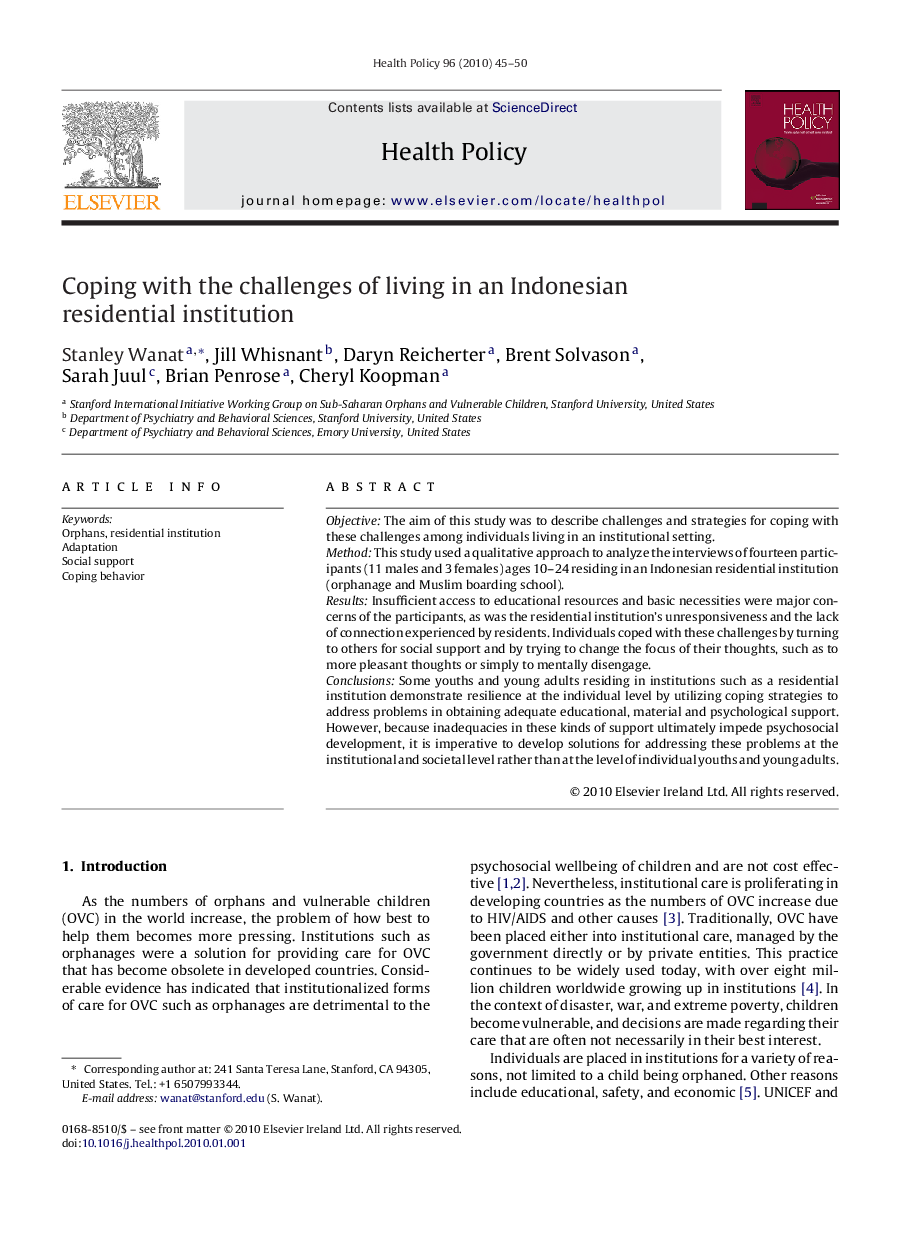| Article ID | Journal | Published Year | Pages | File Type |
|---|---|---|---|---|
| 4198250 | Health Policy | 2010 | 6 Pages |
ObjectiveThe aim of this study was to describe challenges and strategies for coping with these challenges among individuals living in an institutional setting.MethodThis study used a qualitative approach to analyze the interviews of fourteen participants (11 males and 3 females) ages 10–24 residing in an Indonesian residential institution (orphanage and Muslim boarding school).ResultsInsufficient access to educational resources and basic necessities were major concerns of the participants, as was the residential institution's unresponsiveness and the lack of connection experienced by residents. Individuals coped with these challenges by turning to others for social support and by trying to change the focus of their thoughts, such as to more pleasant thoughts or simply to mentally disengage.ConclusionsSome youths and young adults residing in institutions such as a residential institution demonstrate resilience at the individual level by utilizing coping strategies to address problems in obtaining adequate educational, material and psychological support. However, because inadequacies in these kinds of support ultimately impede psychosocial development, it is imperative to develop solutions for addressing these problems at the institutional and societal level rather than at the level of individual youths and young adults.
